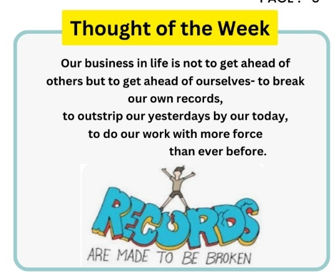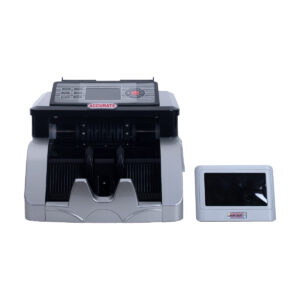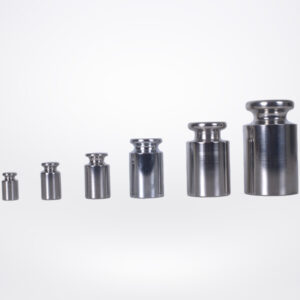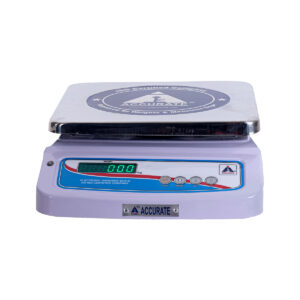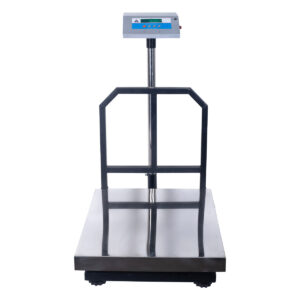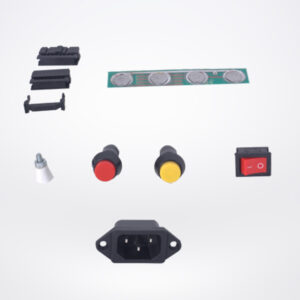Weighing systems have advanced significantly throughout the years, but there are new developments that provide companies with smarter solutions that are not only speeding up specific tasks, but also minimizing inaccuracies.
Customized weighing systems: Competition is driving many Customized Weighing Systems companies to increase production and profits. One of the many ways to increase the bottom line is by improving the weighing technologies used in various stages of the manufacturing, packing and distribution process. Customers today looking to buy industrial scales no longer depend on off the shelf options because many suppliers are willing to accommodate customized requests. Clients can have weighing scales made according to their needs with features such as data sorting and analysis, remote function and trade compliance. Although custom weighing scales are generally more expensive, increasing efficiency in the production and distribution process will pay off over time. Remote access and monitoring: Innovation in connectivity leads to the development of weighing scales used in a variety of innovative applications. For example, a weighing scale may be used to monitor inventory in warehouses or check the health of animals in holding paddocks. Nowadays, digitally- enabled weighing scales are also capable of transmitting data into mobile devices or computers even when used in a remote location. In the agriculture industry, remote monitoring using digital weighing scales has made it more convenient for farmers to manage the health of livestock. Data received from weighing scales in the stockyard can help in deciding the necessary treatments or amount of feed to give to animals to ensure that they are in optimum health.
Apart from livestock monitoring, a remote capability is a helpful feature to have when you are checking the inventory levels in warehouses, retail outlets and processing lines. Weighing scales can be installed in shelves and containers to determine when the weighing changes and there is a need to replenish supplies. Using Livestock scales to measure animal performance Integration of Weighing Technology: Weighing technology has evolved from a simple application to a process that is incorporated into the supply chain. Eventually, weighing scales will also play a vital role in reducing human intervention in the production process along with advancements in IoT.
Some of the innovative applications of Weighing technology include:
*Quality control: By integrating weighing technology in various stages of production, it is more convenient to check for supply fluctuations in real-time.
POS Weighing Scale Integration *Data collection and logging:
Collecting data using digital weighing scales automatically move the information into databases with accompanying software that will analyze and evaluate the data to come up with actionable solutions.
Customized weighing systems: Competition is driving many Customized Weighing Systems companies to increase production and profits. One of the many ways to increase the bottom line is by improving the weighing technologies used in various stages of the manufacturing, packing and distribution process. Customers today looking to buy industrial scales no longer depend on off the shelf options because many suppliers are willing to accommodate customized requests. Clients can have weighing scales made according to their needs with features such as data sorting and analysis, remote function and trade compliance. Although custom weighing scales are generally more expensive, increasing efficiency in the production and distribution process will pay off over time. Remote access and monitoring: Innovation in connectivity leads to the development of weighing scales used in a variety of innovative applications. For example, a weighing scale may be used to monitor inventory in warehouses or check the health of animals in holding paddocks. Nowadays, digitally- enabled weighing scales are also capable of transmitting data into mobile devices or computers even when used in a remote location. In the agriculture industry, remote monitoring using digital weighing scales has made it more convenient for farmers to manage the health of livestock. Data received from weighing scales in the stockyard can help in deciding the necessary treatments or amount of feed to give to animals to ensure that they are in optimum health.
Apart from livestock monitoring, a remote capability is a helpful feature to have when you are checking the inventory levels in warehouses, retail outlets and processing lines. Weighing scales can be installed in shelves and containers to determine when the weighing changes and there is a need to replenish supplies. Using Livestock scales to measure animal performance Integration of Weighing Technology: Weighing technology has evolved from a simple application to a process that is incorporated into the supply chain. Eventually, weighing scales will also play a vital role in reducing human intervention in the production process along with advancements in IoT.
Some of the innovative applications of Weighing technology include:
*Quality control: By integrating weighing technology in various stages of production, it is more convenient to check for supply fluctuations in real-time.
POS Weighing Scale Integration *Data collection and logging:
Collecting data using digital weighing scales automatically move the information into databases with accompanying software that will analyze and evaluate the data to come up with actionable solutions.
